4 hrs, 5 kms
Day totals: 14 hrs, 14 kms
As soon as the van heads out of St Georges, I'm struck with the thought "Ooooh
... THIS is what a Caribbean island is supposed to look like!"
No, it's not endless white beaches and all inclusive tourist resorts... It's a narrow road that snakes at the base of jungle covered mountains, with angry surf crashing against the cliffs... the jungle periodically interrupted by simple but beautiful hamlets of brightly painted wood and metal roof houses perched on stilts... with lots of people out and about.
Yes, this is going to be the perfect place to experience authentic Caribbean culture. I also notice that there's not a single tourist or tourist facility in sight anywhere. It seems all the tourists just cram into one area, leaving the rest of the country untouched. I'm really excited about exploring this country on foot now.
The van reaches the end of the line, and it's just a short walk farther to Non Pariel, along a stretch with a sheer cliff rising to my right and open sea to my left
.
Sure enough, the first person I ask directs me to Kim's Cocoa Farm. I enter an open gate to where there are a couple of cabins, some odd looking giant sled runners (used for pulling out trays of cocoa for drying) and a house with a large, open room. Kim gives me a jolly welcome, sits me down and offers me some tea.
"These are actually the walls of the original plantation house--but it was in ruins, so we pretty much had to start from scratch". He tells me. I'm quite impressed--it's a beautiful, rustic-style house... In the bathroom there are giant boulders that just kind of blend in with the style.
"When we moved here we didn't even know that there were cocoa trees here. We just started slashing through the jungle growth and there they were. Now we export high end chocolate directly to expensive shops in London."
But before you conjure up an image of a stiff British gentleman trying to relive the glory days of the colonial era, let me assure you that Kim is anything but that
. He's actually one of the most unusual, intriguing and fascinating characters I've met in a long time.
"Modern education is designed to turn everyone into wage slaves, to be dependant on the system. I've always rebeled against that" He goes on to tell about his life, how he joined the Gypsies at a young age, worked with a traveling circus, lived in all sorts of vehicles (including horse-drawn) which he worked on and maintained himself.
"For 20 years I supported a family of five busking on the streets of Europe" he tells me. "It was a wonderful life" He speaks very highly of the Gypsy community and culture. "They're looked down on simply because they don't live by other people's rules"
"Margaret Thatcher hated us, and tried hard to destroy our culture and lifestyle--to force everyone to conform to the government's system. Laws were set to make camping illegal. Children were taken from their parents
... people forced into government housing."
He continues with an unconventional insight: "In the cold, a fire is more important than the a roof. In government housing, you're like in a concrete icebox because you can't afford to pay for heat. But if you've got a fire, you can sleep under the wagon with your back to the flames and stay perfectly warm"
He continues on telling me of the many twists and turns his life has taken... living on a boat and sailing to South America... coming to Grenada and buying a plantation...
Out the window you can watch the sun setting over Crayfish Bay, as the palm trees sway gently. This has been a perfect day, and I know how to give it a perfect finish: go fo a swim in the sea, just a stones throw away.
Dinnertime at the Cocoa Farm
It's suppertime when I come back in
. At the table is Lylette, Kim's wife who is Guyanese and previously lived in St Lucia. She also has a fascinating life story with a lot of wisdom to share--as well as insights into Caribbean culture. As a practicing Buddhist she's a non-conformist as well. Christianity is deeply entrenched here in the Caribbean, and leaving the Christian faith can cause people to be shunned.
"Growing up I saw how Christian pastors were getting richer and richer by pressuring people to give more and more--people sometime go hungry so they can give money to the church. I simply realized that that didn't make sense."
Also at the table is Alex, a 20 year old Norwegian girl who is on a 6 week trip around the Caribbean
"I wanted to work for a while before starting college. But I felt I was falling into a routine, so I decided to just go on a trip... I've always been pretty independent..."
Finally it's time to hit the sack. I bid my hosts goodnight and head to the lower floor turned dormitory, where the sound of the waves and the jungle insects put me to sleep.
1910. Kim's Organic Cocoa Farm
Saturday, January 31, 2015
 Nonpareil, Saint Mark, Grenada
Nonpareil, Saint Mark, Grenada
Other Entries
-
1201899 The Collapsing Mine Town
Oct 15108 days prior Broad Top, United Statesphoto_camera8videocam 0comment 0
Broad Top, United Statesphoto_camera8videocam 0comment 0 -
1211900 The Forgotten Valley
Oct 15108 days prior Cassville, United Statesphoto_camera12videocam 0comment 0
Cassville, United Statesphoto_camera12videocam 0comment 0 -
1221901 Same Name, Different World
Oct 15108 days prior Saltillo, United Statesphoto_camera5videocam 0comment 0
Saltillo, United Statesphoto_camera5videocam 0comment 0 -
1231902 My New Favorite Swimming Hole
Oct 15108 days prior Three Springs, United Statesphoto_camera39videocam 0comment 0
Three Springs, United Statesphoto_camera39videocam 0comment 0 -
124Post-visit: The Rest-stop Town
Dec 0161 days prior McConnellsburg, United Statesphoto_camera19videocam 0comment 0
McConnellsburg, United Statesphoto_camera19videocam 0comment 0 -
125Post-visit: Ponderings on our 15th President
Dec 0161 days prior Mercersburg, United Statesphoto_camera24videocam 0comment 0
Mercersburg, United Statesphoto_camera24videocam 0comment 0 -
126Post-visit: the Covered Bridge
Dec 0260 days prior Greencastle, United Statesphoto_camera13videocam 0comment 0
Greencastle, United Statesphoto_camera13videocam 0comment 0 -
127Post-visit: The Hunter Gatherer
Dec 0359 days prior Saint Thomas, United Statesphoto_camera19videocam 0comment 0
Saint Thomas, United Statesphoto_camera19videocam 0comment 0 -
128Postvisit: Back in Chambersburg
Dec 0953 days prior Chambersburg, United Statesphoto_camera0videocam 0comment 0
Chambersburg, United Statesphoto_camera0videocam 0comment 0 -
129Post-visit: Remembering 1994
Dec 1052 days prior Chambersburg, United Statesphoto_camera28videocam 0comment 0
Chambersburg, United Statesphoto_camera28videocam 0comment 0 -
1301903. First Impressions of the Caribbean
Jan 283 days prior Port of Spain, Trinidad and Tobagophoto_camera30videocam 0comment 0
Port of Spain, Trinidad and Tobagophoto_camera30videocam 0comment 0 -
1311904. Hiking in the Tropics
Jan 283 days prior Petit Valley, Trinidad and Tobagophoto_camera7videocam 0comment 0
Petit Valley, Trinidad and Tobagophoto_camera7videocam 0comment 0 -
1321905. The People who Live at Sea
Jan 292 days priorChaguaramasphoto_camera33videocam 0comment 0 -
1331906. A Delicious Lunch
Jan 301 day prior Carenage, Trinidad and Tobagophoto_camera5videocam 0comment 0
Carenage, Trinidad and Tobagophoto_camera5videocam 0comment 0 -
1341907. A City with No Hotels
Jan 301 day prior San Fernando, Trinidad and Tobagophoto_camera6videocam 0comment 0
San Fernando, Trinidad and Tobagophoto_camera6videocam 0comment 0 -
1351908. Flying into a Mini-country
Jan 31earlier that day Calliste, Grenadaphoto_camera11videocam 0comment 0
Calliste, Grenadaphoto_camera11videocam 0comment 0 -
1361909. The Musician-Painter
Jan 31earlier that day St. George's, Grenadaphoto_camera38videocam 0comment 0
St. George's, Grenadaphoto_camera38videocam 0comment 0 -
1371910. Kim's Organic Cocoa Farm
Jan 31 Nonpareil, Grenadaphoto_camera21videocam 0comment 0
Nonpareil, Grenadaphoto_camera21videocam 0comment 0 -
1381911 Starting the Hike
Feb 011 day later Grand Roy, Grenadaphoto_camera10videocam 0comment 0
Grand Roy, Grenadaphoto_camera10videocam 0comment 0 -
1391912 My First Beach Discovery
Feb 011 day later Mount Nesbit, Grenadaphoto_camera10videocam 0comment 0
Mount Nesbit, Grenadaphoto_camera10videocam 0comment 0 -
1401913 Sunday in Grenada
Feb 011 day later Gouyave, Grenadaphoto_camera10videocam 0comment 0
Gouyave, Grenadaphoto_camera10videocam 0comment 0 -
1411914 Encounter with the Farmer
Feb 011 day later Maran, Grenadaphoto_camera10videocam 0comment 0
Maran, Grenadaphoto_camera10videocam 0comment 0 -
1421915 Town vs Village
Feb 011 day later Victoria, Grenadaphoto_camera15videocam 0comment 0
Victoria, Grenadaphoto_camera15videocam 0comment 0 -
1431916 Back at the Plantation
Feb 011 day later Waltham, Grenadaphoto_camera8videocam 0comment 0
Waltham, Grenadaphoto_camera8videocam 0comment 0 -
1441917 The Waterfall
Feb 022 days later Concord, Grenadaphoto_camera23videocam 0comment 0
Concord, Grenadaphoto_camera23videocam 0comment 0 -
1451918 The Sunken Ship
Feb 022 days later Brizan, Grenadaphoto_camera7videocam 0comment 0
Brizan, Grenadaphoto_camera7videocam 0comment 0 -
1461919 The Marshes
Feb 022 days later Happy Hill, Grenadaphoto_camera8videocam 0comment 0
Happy Hill, Grenadaphoto_camera8videocam 0comment 0 -
1471920 An Actual Parkbench
Feb 022 days later Fontenoy, Grenadaphoto_camera10videocam 0comment 0
Fontenoy, Grenadaphoto_camera10videocam 0comment 0 -
1481921 The Arawak Stone Carvings
Feb 033 days later Duquesne, Grenadaphoto_camera10videocam 0comment 0
Duquesne, Grenadaphoto_camera10videocam 0comment 0 -
1491922 Heading Inland
Feb 033 days later Chantimelle, Grenadaphoto_camera6videocam 0comment 0
Chantimelle, Grenadaphoto_camera6videocam 0comment 0 -
1501923 The North Shore
Feb 033 days later Sauteurs, Grenadaphoto_camera10videocam 0comment 0
Sauteurs, Grenadaphoto_camera10videocam 0comment 0 -
1511924 Freshwater Swim
Feb 033 days later Snell Hill, Grenadaphoto_camera6videocam 0comment 0
Snell Hill, Grenadaphoto_camera6videocam 0comment 0 -
1521925 Winding through the Mountains
Feb 033 days later Mount Rich, Grenadaphoto_camera5videocam 0comment 0
Mount Rich, Grenadaphoto_camera5videocam 0comment 0 -
1531926 The Rastafarian Farmer
Feb 033 days later Belmont, Grenadaphoto_camera10videocam 0comment 0
Belmont, Grenadaphoto_camera10videocam 0comment 0 -
1541927 Pushing my Luck
Feb 033 days later Tivoli, Grenadaphoto_camera3videocam 0comment 0
Tivoli, Grenadaphoto_camera3videocam 0comment 0 -
1551928 The Other Grenada
Feb 044 days later Falege, Grenadaphoto_camera9videocam 0comment 0
Falege, Grenadaphoto_camera9videocam 0comment 0

 Nonpareil, Saint Mark, Grenada
Nonpareil, Saint Mark, Grenada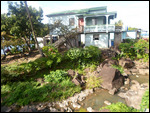
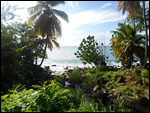
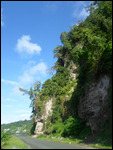
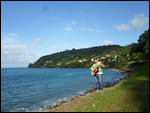
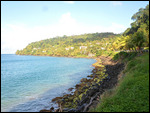



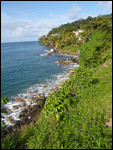
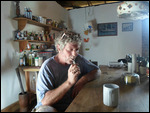
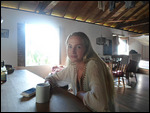
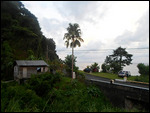
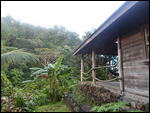
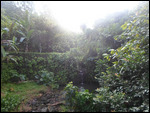
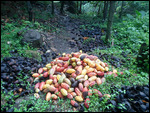
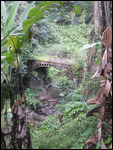
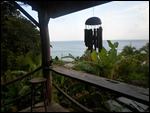
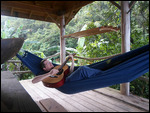
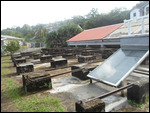
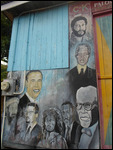
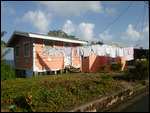
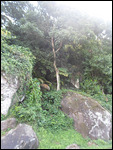
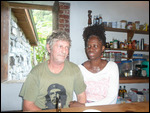
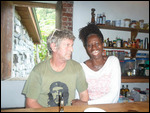
2025-05-22